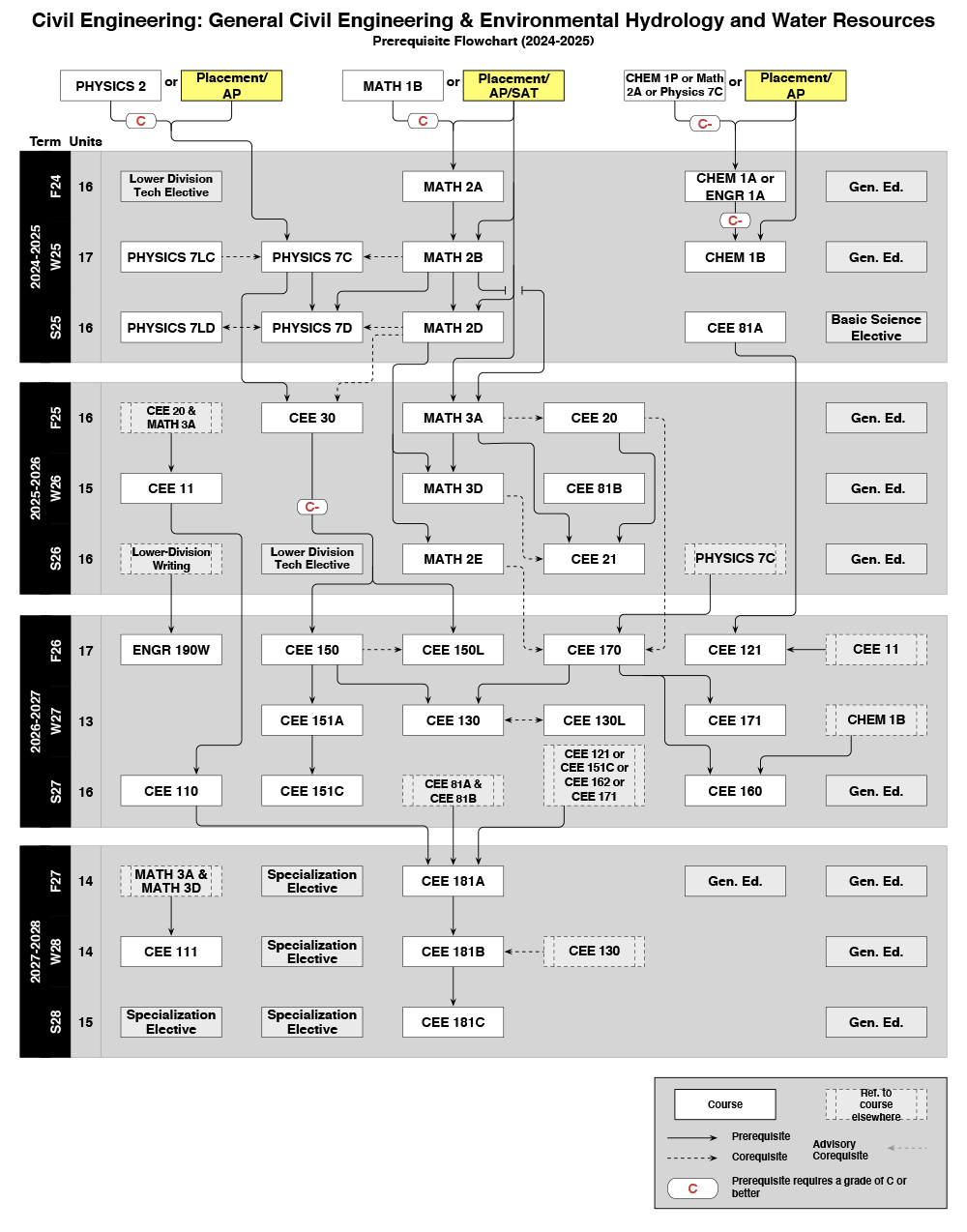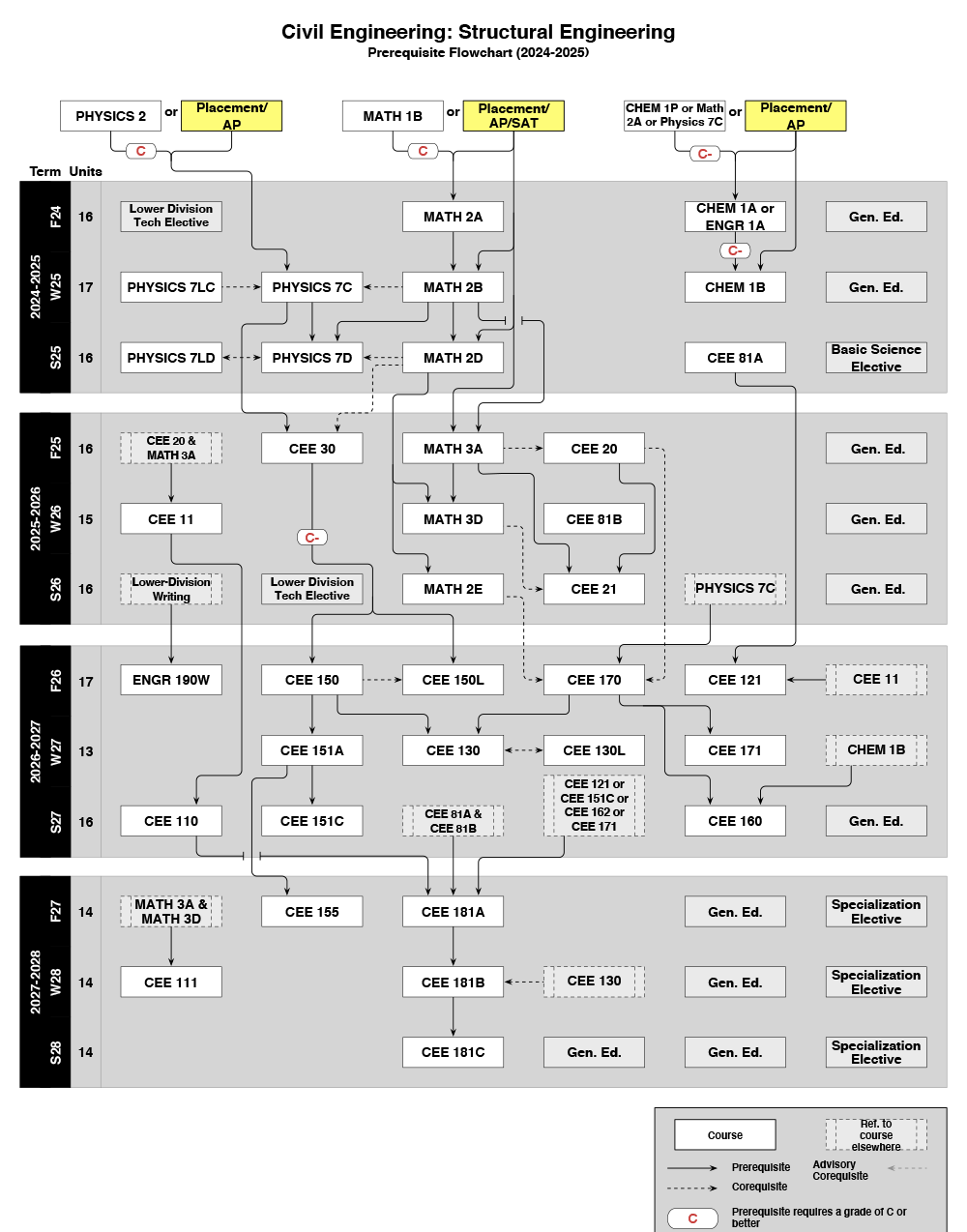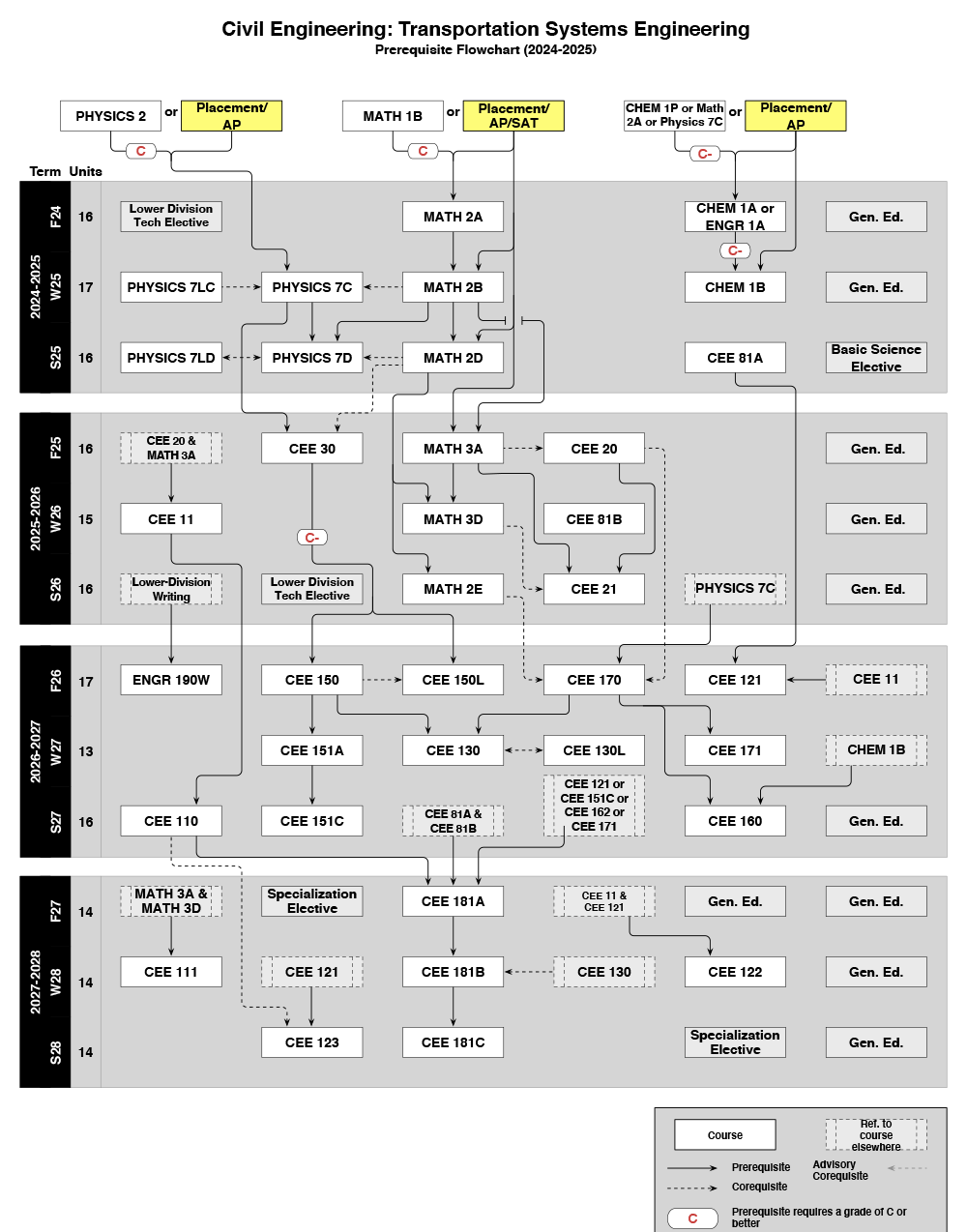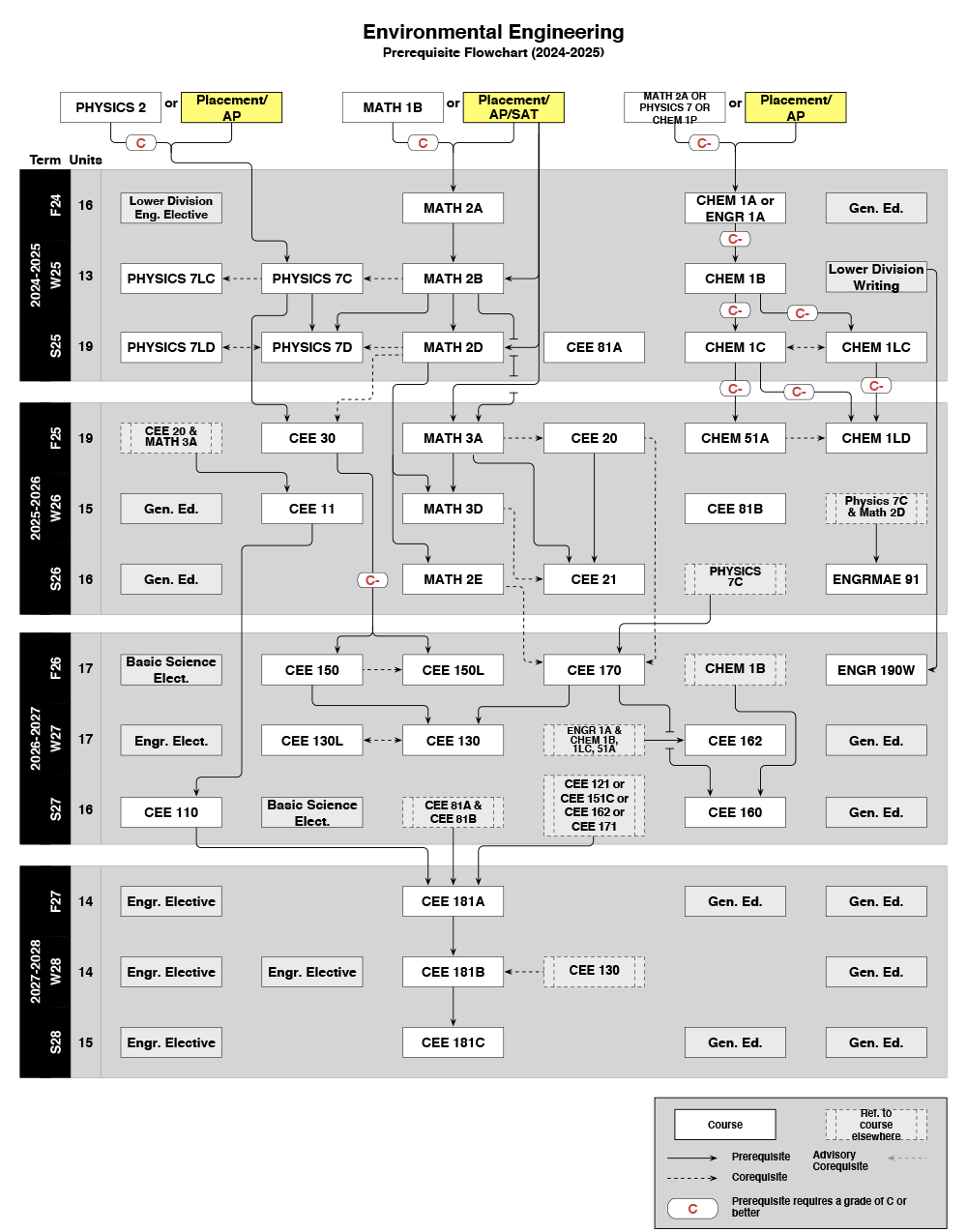Civil Engineering
Civil Engineering is described as the art of substainably harnessing the natural environment to meet human needs. The success of this endeavor is evident all around us. The arid plain which greeted the early settlers in Southern California has been transformed into a thriving metropolis largely by the application of civil engineering.
The goal of the Civil Engineering curriculum is to prepare graduates for a career in practice, research, or teaching. At the undergraduate level a common core of fundamental subjects is provided, and students are required to specialize in their senior year. Specializations are offered in General Civil Engineering, Environmental Hydrology and Water Resource Engineering, Structural Engineering, and Transportation Systems Engineering. Concentrations are offered in Computer Applications, Engineering Management, Infrastucture Planning, and Mathematical Methods. Graduate opportunities are in three major thrust areas: structural analysis, design, and reliability; transportation systems engineering; and water resources and environmental engineering.
The career opportunities in civil engineering are varied as in any other discipline. Graduates may look forward to long-term careers in major corporations, public bodies, the military, private consulting firms, or to being self-employed in private practice. History has shown a civil engineeing education to be a good ground for many administrative and managerial positions.
Civil Engineering Educational Mission and Goals




